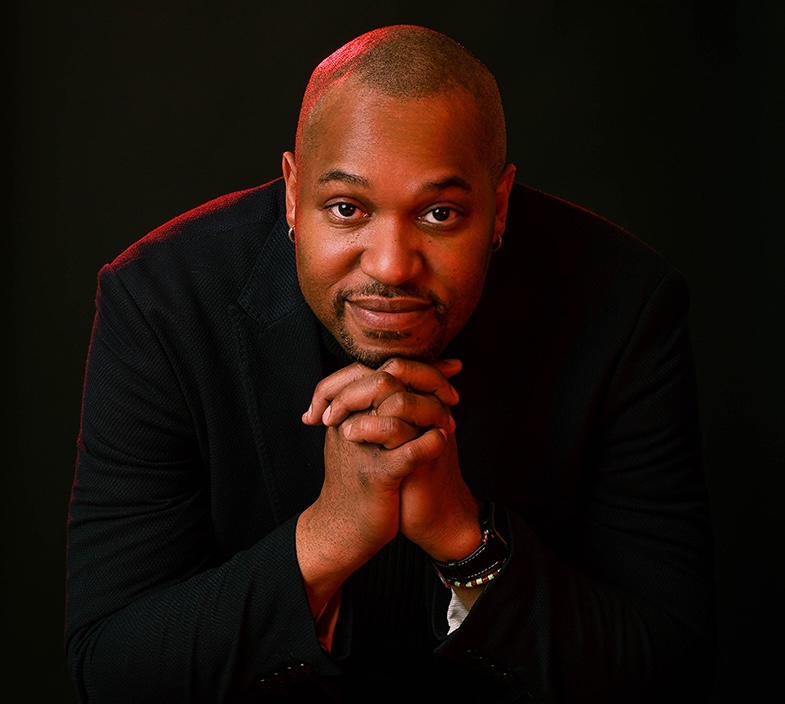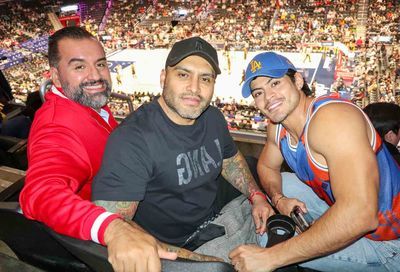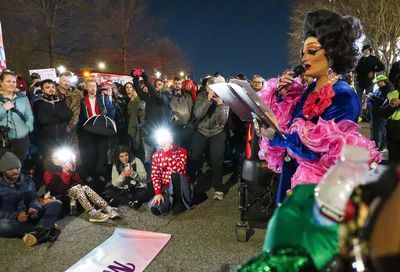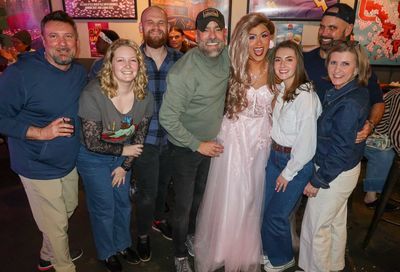Preaching Past the Choir: Q&A with Tarell McCraney
Tarell McCraney depicts the journey of young black men in his work, including his new play "Choir Boy"


MW: I guess to an extent it depends on what you want to do. You just made me think of Moises Kaufman’s The Laramie Project, which is a kind of mix of journalism and art and theater. So I guess if you wanted to do that, you could.
MCCRANEY: Yeah, but what is that though? I don’t think Moises went to Laramie thinking to himself, I’m going to write, I just want this entire story to be out. There was something that drew him specifically — the friends and family, and what they were going through. There’s something I’m sure that drew Lynn Nottage to Ruined to figure out what was going on specifically. I don’t think she was just like, I’m going to encapsulate the entire war [in what is now the Democratic Republic of Congo]. But again you have to ask those larger questions. And what I’m asserting is that in these moments right now, there are so many questions and so much that I don’t know, that’s it hard to get a handle on.
And what I do know I’m not going to write a play about. That’s uninteresting. Me being upset that black lives are being murdered in the street doesn’t make a good play. It’s a quick and quiet evening.
MW: Switching gears, a few months ago the Los Angeles Times ran a profile of you, and it made passing reference to a fact I don’t think a lot of people know, that you lost your mother to AIDS-related complications just over a decade ago. Have you ever touched on the pandemic in your work?
MCCRANEY: No, I haven’t touched on it specifically. I think the thing that’s always important to me about work is that I try not to write from a place of all knowing. Of course, we as human beings think we know everything. That’s our hubris; it’s our greatest downfall. And there are things that I’m sort-of certain about or have an unwavering understanding about right now. I’m sure something will happen to shake up my understanding about that, which is fantastic. But I know that HIV is a phenomena that happened, happens, is happening. I have lots of statistics and I read tons of articles, and again I think I personally wouldn’t be writing a very good play if I just put all of the things that I know about it up.
I think we can do a better job of caring for people who are positive. But do you want me to write a play about people who are caring for people who are positive? I try to be as informed as I can, explain as much as I can, donate as much as I can, make sure that resources are available. But writing a play about making sure resources are available, I don’t necessarily know if that’s — I don’t know if I could make a good one. That’s the other thing: As an artist you want to do something good. You want to be like, “This is a good play!” And I don’t know if I could make a good play about that. There are tons of great plays about the pandemic — Larry Kramer, Tony Kushner. When I see those plays I’m like, “Yep, they did a fantastic job.” Can I do a fantastic job on it? Not just yet. Maybe soon, maybe. It’s not like I don’t have interest in the topic. For instance, there are tons of moments of sickness in my plays, and people passing away, people with illnesses that necessarily we don’t know how to define. And so I think it comes up in other ways.
MW: I don’t know when your mother contracted HIV or how old you were when you found out about it. But I suspect your perspective on the topic is different than a lot of people’s, especially other gay people’s.
MCCRANEY: Probably because of my understanding I have a different perspective. Anytime I find out somebody’s parent passed away from AIDS-related complications, I feel sad for them. It makes me sad, especially because there are so many people living long and full lives. But no, I learnt it very early on — in my early teens. And had to learn a lot of information about a seemingly very complicated disease [and] more complicated policy and phenomena — the disease actually was pretty simple to know or understand.
MW: Returning to Choir Boy, I wanted to ask specifically about the character Pharus. Do you identify with him?
MCCRANEY: Whether I identify with him or not, I think he’s amazing. Those people like Pharus who can, in the middle of a place that is basically telling them to be something else [and yet] they remain truly themselves, and somehow try to flourish within that — that’s just, I think, spectacular. And I also love people who have generosity for others who may not be being generous to them. I think that’s fascinating. To be able to somehow find empathy for people who are oppressing you, or being mean to you, I think that level of generosity is saintly.
Of course he’s not perfect. He’s not an angel-born saint, he’s a human-born saint. He has his flaws. But at the same time, still, in his situation most of us would sort of bristle and either shut down or try to remove ourselves from, he remains. And also finds kindness and/or openhandedness and in some cases love from people who are hurting him. And I think that is noble. That’s inspiring. That is something to be protected, something to be cherished and examined in a closer, more intimate way.
MW: Is the character informed by your own experience? Did you suffer taunts and resistance from other kids who maybe didn’t understand you?
MCCRANEY: I definitely was bullied as a kid. I think the distinction is that I am not like Pharus. He’s much more fascinating. He is resilient. Do I know people like Pharus? Yes I do. Many people who choose to remain who they are regardless of pressures around them. And not in any sort of flagrant or flamboyant way. Not in the way of like I’m showing off who I am. But more so I am being my most true self in every moment that I can. Because at the end of the day that is what we all hope and wish we are, right? Most of the time we’re not — we’re throwing on masks, we’re running around trying to do this and that for everybody else. We’re living in double-triple consciousnesses. But for a person to say, “Look, this is at root who I am and I am going to try and enact that in all of the things that I do,” that’s amazing. That’s powerful. And I think it sometimes scares people. It’s enviable. I wish I could be zero-to-one-hundred myself all the time.
Tarell McCraney’s Choir Boy runs to Feb. 22 at Studio Theatre, 14th & P Streets NW. Tickets are $44 to $88. Call 202-332-3300 or visit studiotheatre.org.
Support Metro Weekly’s Journalism
These are challenging times for news organizations. And yet it’s crucial we stay active and provide vital resources and information to both our local readers and the world. So won’t you please take a moment and consider supporting Metro Weekly with a membership? For as little as $5 a month, you can help ensure Metro Weekly magazine and MetroWeekly.com remain free, viable resources as we provide the best, most diverse, culturally-resonant LGBTQ coverage in both the D.C. region and around the world. Memberships come with exclusive perks and discounts, your own personal digital delivery of each week’s magazine (and an archive), access to our Member's Lounge when it launches this fall, and exclusive members-only items like Metro Weekly Membership Mugs and Tote Bags! Check out all our membership levels here and please join us today!
























You must be logged in to post a comment.